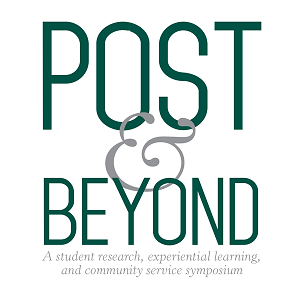Genetic Counselors' Practices and Protocols in Variant Interpretation of Variants of Uncertain Significance (VUS): A Comprehensive Investigation
Faculty Mentor
Monika Zak
Area of Research
Biology, Genetic Counseling
Major
Genetic Counseling
Description
Introduction: Variant interpretation, particularly for Variants of Uncertain Significance (VUS), remains a critical challenge in clinical genetics. Genetic counselors play a vital role in assessing, interpreting, and communicating these variants to patients. However, variability in practices and workflows can impact consistency in patient care. This study aims to investigate current practices among clinical genetic counselors in North America regarding VUS interpretation, management, and reclassification protocols. Methods: A cross-sectional survey was conducted over two months, targeting clinical genetic counselors across North America. Participants were recruited via professional networks such as the National Society of Genetic Counselors (NSGC) and the American Board of Genetic Counseling (ABGC). The survey, hosted on SurveyMonkey, comprised 23 questions, including multiple-choice and Likert-scale items, covering demographics, clinical workflows, variant interpretation methods, and protocols for reclassification. Descriptive statistics were used to analyze quantitative responses, while thematic analysis was applied to qualitative data. Results and Conclusion: Findings revealed that most genetic counselors consistently review evidence from genetic test reports and external resources (e.g., GeneReviews, OMIM, ClinVar, Franklin Genoox). While disagreements with laboratory variant classifications were uncommon, they often stemmed from conflicting lab interpretations or discrepancies in clinical correlation. VUS reclassification was reported frequently, yet protocols for notifying patients varied. Most participants notified patients of reclassification to pathogenic or benign categories, but communication methods differed. Additionally, high patient caseloads, particularly in cancer genetics, may impact the ability to dedicate time to variant interpretation and follow-up. These findings highlight the need for standardized workflows to ensure consistency in VUS interpretation and patient communication. Future research should focus on assessing the impact of these workflows on patient care and developing strategies to harmonize variant interpretation practices across specialties.
Genetic Counselors' Practices and Protocols in Variant Interpretation of Variants of Uncertain Significance (VUS): A Comprehensive Investigation
Introduction: Variant interpretation, particularly for Variants of Uncertain Significance (VUS), remains a critical challenge in clinical genetics. Genetic counselors play a vital role in assessing, interpreting, and communicating these variants to patients. However, variability in practices and workflows can impact consistency in patient care. This study aims to investigate current practices among clinical genetic counselors in North America regarding VUS interpretation, management, and reclassification protocols. Methods: A cross-sectional survey was conducted over two months, targeting clinical genetic counselors across North America. Participants were recruited via professional networks such as the National Society of Genetic Counselors (NSGC) and the American Board of Genetic Counseling (ABGC). The survey, hosted on SurveyMonkey, comprised 23 questions, including multiple-choice and Likert-scale items, covering demographics, clinical workflows, variant interpretation methods, and protocols for reclassification. Descriptive statistics were used to analyze quantitative responses, while thematic analysis was applied to qualitative data. Results and Conclusion: Findings revealed that most genetic counselors consistently review evidence from genetic test reports and external resources (e.g., GeneReviews, OMIM, ClinVar, Franklin Genoox). While disagreements with laboratory variant classifications were uncommon, they often stemmed from conflicting lab interpretations or discrepancies in clinical correlation. VUS reclassification was reported frequently, yet protocols for notifying patients varied. Most participants notified patients of reclassification to pathogenic or benign categories, but communication methods differed. Additionally, high patient caseloads, particularly in cancer genetics, may impact the ability to dedicate time to variant interpretation and follow-up. These findings highlight the need for standardized workflows to ensure consistency in VUS interpretation and patient communication. Future research should focus on assessing the impact of these workflows on patient care and developing strategies to harmonize variant interpretation practices across specialties.

